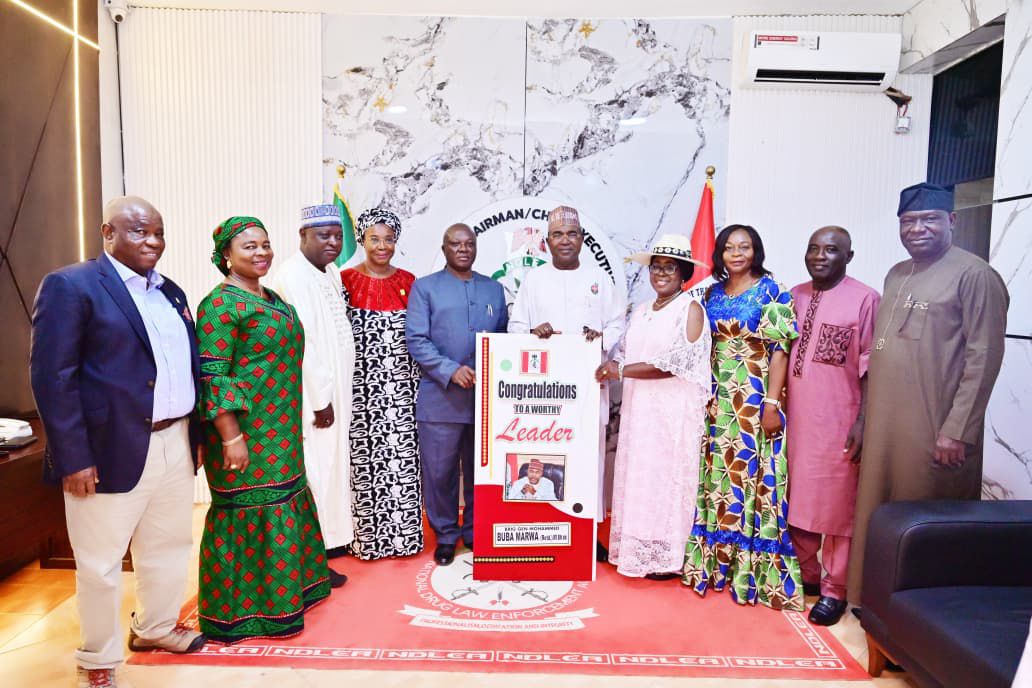COP27 implores African Governments to build Capacity of healthcare professionals as first responders to climate change campaign
4 min read
COP27 implores African Governments to build Capacity of healthcare professionals as first responders to climate change campaign
By Cyriacus Nnaji
African Governments (Nigeria in particular) have been implored to initiate National Capacity Building programs for the healthcare professionals as agents of climate change campaign and as First Responders to climate change disasters and risk reductions.
Pastor Peters Osawaru Omoragbon, the Executive President/CEO, Nurses Across the Borders Humanitarian Initiative made the disclosure while delivering a paper titled ‘My Reality Check: ‘Facts and Not Fictions on Climate Change and Public Health Crisis’ at the 27th United Nations Framework Convention on Climate Change (UNFCCC) which was held at Sharm el Sheikh International Conference Centre, Egypt which commenced November 6 and ended November18, 2022, adding that it was part of the recommendations at the end of a Two-Day Side-Events at the conference.
Other far-reaching recommendations include intensification of pressure on governments in Africa to urgently support and execute the Climate Resilient Health Systems Initiative that promotes the Goals of the Adaptation Action Coalition (AAC) by addressing health impacts of climate change while strengthening health resilience.
Nurses Across the Borders also recommended that the Federal Government especially the Federal Ministry of Health should improve upon its relationship with the civil society as partner stakeholders and emulate the practice of the Lagos State Commissioner for Health, Prof Abayomi to appoint a Civil Society Leader to head its Civil Society Desk. “The civil society is the eyes, ears and the mouth-piece of the grassroots and can bridge the gaps between government and the governed. We call on the Federal Ministry of Health to rise up and take its position in both policy formulation and negotiations as far as the climate change discuss is concerned. The Health Ministry just as the World Health Organisation (WHO) is a major and an integral player in the climate change campaign.
Read Also:Okowa calls for dredging of Rivers Niger, Benue, building holding dams
“The Federal Ministry of Environment must open up its space to engage all major stakeholders in the climate change campaign especially with/to the health, agriculture, water, science and technology ministries and line ministries in this process. Officials of these ministries must be included in the Nigerian delegation of negotiators to future COPs’ meetings.
“The Federal Ministry of Health should be leading the process of developing both the National Adaptation Plan and the Health National Adaptation Plan because it possesses the expertise for this and if properly harnessed (collaborate with major civil society groups) involved in this process,” Omoragbon stated.
Omoragbon who is the designated contact person from Nigeria at the COP 27 said that with specific reference to the nursing/midwifery profession, the events recognised and noted that as the single largest professional group within the health sector with over 28 million registered nurses/midwives worldwide and as the most trusted profession by adopting the proposal of Patricia Butterfield, Jeanne Leffers, Maribel Diaz Vasquez from their Nursing Pivotal Role in Global Climate Action, it was observed that broad range of power within the healthcare system-hierarchies continue to block their full capacity.
Read Also:What Yahaya Bello said when asked to list what Bola Tinubu has that other candidates do not possess.
He said due to yearning for knowledge and action on Nurses climate challenge, it was resolved to Accelerate change by leapfrogging nurses into leadership roles by employing recent international initiatives that can move nurses into executive level leadership roles; Foster representation of nurses on international and national boards, congresses, governmental panels, and delegations as high- level decision makers by building partnerships among nursing organizations globally to strengthen the power of the profession; Pay for nurses’ climate change work. Give nurses and nursing students the skills they need to create the future; Develop educational strategies for nursing advocacy skills through integrating planetary health, social determinants, health equity and lifespan, occupational and location specific vulnerabilities into nursing climate change education and Amplify the voice of nurses to reach healthcare professionals, patients, families, and communities and Extend the effectiveness of nursing by speaking truth to power to mitigate the effect of climate change on health.
Other measures recommended include Ensuring a global lens by extinguishing Western biases in the climate action agenda of nursing; Promoting a stronger voice from nurses in low and middle income countries in the international climate action agenda; Endorse an intercultural approach in indigenous areas to guarantee the right to health and a healthy environment; Influence others by showing personal commitment to sustainable living choices and Exposing corporate greed and governmental corruption as primary causes of climate change, among other recommendations.




